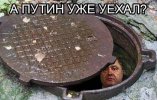World Economic Forum. Geneva initiative on Ukraine
In the spirit of dialogue and in the search for common ground to find solutions for the conflict in Ukraine, sixteen prominent business leaders with equal representation from Ukraine, the Russian Federation, Europe, and the United States gathered privately on the invitation of Klaus Schwab, Founder and Executive Chairman of the World Economic Forum, on Sunday September 14th in Geneva. While acknowledging the complexity of the situation and the different viewpoints, the participants succesfully agreed on a common approach. The ten points summarized below are considered by all to help resolve the conflict. All participants recognize that the implementation of these proposals in the present context is challenging given the many complexities. They trust the political leaders involved and their ongoing dialogue, and hope that these proposals can support their initiatives for resolving the Ukraine conflict. The participants also hope that the political leaders can meet soon to bring an end to the conflict, and they pledge their full support for such a political process.
1. Build on the 12 point ceasefire plan elaborated under the OSCE. Ensure a sustained truce, supporting the immediate end of violence and further loss of life. Acknowledge the primacy of the value of human life.
2. Refrain from using provocative and belligerent language, recognizing that it is only through dialogue conducted in an honest and collaborative spirit that progress, security and sustainable peace can be achieved.
3. Intensify the process of comprehensive dialogue on a national Ukrainian level, between Ukraine and the Russian Federation and between Europe, the Russian Federation, Ukraine and the United States with the commitment to establish shared objectives and identify key milestones for the solutions to the present challenges.
4. Maintain a security framework in Ukraine’s eastern region under the oversight of the OSCE, to last until the territorial security is guaranteed.
5. Initiate an inclusive political process towards the decentralisation of power in Ukraine, where additional rights are delegated from the central government to the regions, while also supporting guarantees for minority and language rights.
6. Guarantee the security and sovereignty of Ukraine by the international community. Recognize the supremacy of international law above national interests. Recognize the right of self-determination but encourage to consider a policy of military non-alignment for Ukraine, comparable to the status of other European countries (i.e. Finland, Sweden, Switzerland).
7. Identify how sanctions and counter-sanctions can be avoided and rolled-back in accordance with key milestones achieved in the process of reconciliation, as part of a process of re-establishing normal business dialogue and relations.
8. Put in place an economic recovery plan which addresses the devastation created by the conflict, the need for humanitarian assistance and the rehabilitation of infrastructure required. Establish for this a multistakeholder process and encourage all actors, particularly business, to jointly invest.
9. Coordinate and establish special association and trade agreements for Ukraine as well with the European Union as with the Russian Federation, and later possibly with the Eurasian Economic Community, to stabilize Ukraine’s economy, allowing Ukrainian companies to boost job creation, to improve long-term growth prospects and to reach international levels of competitiveness.
10. Organize a summit for the top political leaders from Europe and European countries involved, the Russian Federation, Ukraine and the United States in Geneva within a short timeframe to advance the reconciliation process.
http://a-chubais.livejournal.com/68236.html (in Russian) – link
PS. I am not at all surprised at the presence of Chubais in this set. Of course, the DPR and the LPR are not represented in any way on this level, but the gauleiter Taruta is present.
The general meaning of the document, which is not hard to notice, is to somehow preserve Donbass in Ukraine in exchange for the West refusing to pass new sanctions (and possibly cancel existing ones) and to lower the intensity of the conflict. The Ukrainian oligarchs, which is not hard to notice, find common ground with Russian oligarchs much better than the fascists find it with Novorossia. Kolomoisky here is more of an exception, the others, as practice shows, are quite capable of negotiating on this level, especially when the USA stands behind them. Of course, it is not clear if the word "negotiations" can be used for the sanctions dictate used by the USA in its relations with the Russian Federation to demand further concessions.












